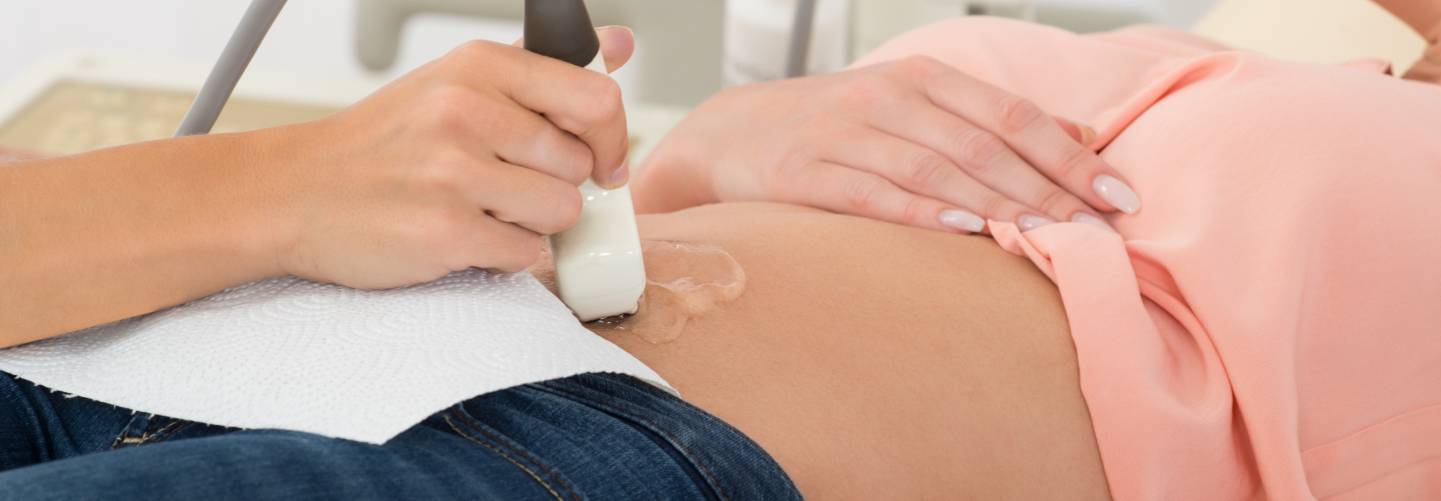
30 Jul Recognise the 14 Signs of Early Pregnancy
Recognise the 14 Signs of Early Pregnancy
By Island Hospital | July 30, 2024 10:34:09 AM
You have been diligently keeping track of your monthly periods, measuring your basal body temperature (BBT) to see whether ovulation has taken place, and spending more intimate moments with your partner.
One day, you realise that your monthly flow has stopped days before the scheduled date and start noticing changes happening to your body, causing you to ask yourself,
“Am I experiencing an episode of premenstrual syndrome (PMS) or is it a sign that I am pregnant?”
In this article, you’ll learn how to recognise the early signs of pregnancy, allowing you t–o better prepare and embark on a journey of welcoming your baby into the world.
What are the 14 Signs of an Early Pregnancy?
It is important to note that the following list merely describes several common signs that may occur during early pregnancy and does not serve as definitive confirmation of actual pregnancy.
There are other factors which may cause these signs as well. The only way to be 100% certain is by taking a pregnancy test.
Here are the 14 signs of an early pregnancy:
- Spotting and cramping
Following conception, the fertilised egg attaches to the uterine wall, which may lead to implantation bleeding, typically pink or brown discharge, as one of the earliest signs of pregnancy.This can occur between 6 and 12 days after the fertilisation of the egg. Sometimes, you will experience a form of cramping similar to menstrual cramps, leading you to be unaware of your pregnancy.
- Vaginal discharge
In addition to bleeding, you may experience a white, milky discharge from the vagina as a result of the thickening of the vaginal walls, which begins almost immediately after conception.It will continue throughout the pregnancy and is harmless. However, if you start to notice a foul odour or experience a burning and itchy sensation, consult your doctor to determine whether there is a bacterial or yeast infection.
- Breast changes
When conception has taken place, hormonal levels will sharply increase in your body, and the first part to feel its effects will be the breasts. Your breasts may often feel sore, swollen, heavier, or tingly to the touch a week or two later.You may also notice that the area around your nipples, known as the areola, is becoming darker. It will take several weeks for your body to adjust to the new hormonal levels.
- Fatigue
During the first four months of your pregnancy, you will probably feel very tired or sluggish for no obvious reason.This is due to heightened levels of progesterone and lower levels of blood sugar and blood pressure. One way to combat this is to get plenty of rest and consume foods rich in protein and iron.
- Nausea (morning sickness)
Despite its name, feelings of nausea can occur at any time of the day. While some women may not experience morning sickness at all, others may be overwhelmed by severe bouts of nausea.During this time, you may also experience strong cravings or aversions to certain foods due to hormonal changes.
- Increased urination
This can happen as early as two weeks after conception, as your kidneys are slowly gearing themselves up to filter the extra waste in your blood produced by the baby forming inside you.Other factors behind this include increased pressure on your bladder by your expanding uterus and increased levels of progesterone.However, if you find yourself having a burning sensation while urinating, check with your doctor to determine whether it is a urinary tract infection (UTI) or not.
- Dizziness or lightheadedness
This is most likely due to hormonal changes, which, in turn, affect blood pressure and blood sugar levels.
- Constipation
When you are pregnant, your body will produce more progesterone than usual, which can make you constipated. This happens because progesterone slows down the movement of food through your intestines.To help with this, try to drink plenty of water, enjoy a variety of high-fibre foods, and make a habit of getting some exercise.
- Heightened sense of smell
An increase in estrogen in your system can lead to heightened sensitivities to certain smells, which may induce feelings of nausea.
- Headaches and lower back pain
You may experience occasional headaches and lower back pain during your pregnancy due to changing hormone levels.
- Mood swings
If you experience intense anger one moment and then uncontrollable tears, there’s no need to worry, this is a normal aspect of pregnancy.These emotional swings are primarily caused by substantial fluctuations in your hormone levels, especially estrogen and progesterone.These changes will also impact your levels of neurotransmitters, chemicals in the brain responsible for regulating moods. Mood swings typically occur during the first trimester between 6 and 10 weeks.
- Shortness of breath
Though this is more common during the later stages of pregnancy, you may find it difficult to breathe in the first few weeks of conception as your body requires more oxygen to support the fetus’s growth.
- A change in basal body temperature (BBT)
Basal body temperature (BBT) refers to your temperature when you are fully rested, and it is usually measured first thing in the morning.If you have been keeping track for some time, you will notice a rise in BBT levels for 18 days following ovulation, signalling that most likely you are having an early pregnancy.
- Chest pains
When you are pregnant, your rib cage undergoes a slight growth, expanding and creating muscular tension in the chest.Your breasts also contribute to chest pains as it will become bigger and strain the surrounding joints and muscles. These conditions only result in mild pain, so there is nothing to be too concerned about.However, if the pain becomes unbearable and prevents you from doing your daily routines, seek medical attention immediately.
How Early Do These Signs Appear?
Some women will notice signs during the first few weeks of their pregnancy in the first trimester, while others may not experience them until much later.
Will All Women Experience the Same Signs?
Not all women will experience the same signs as you, as these can differ in quality and severity. Furthermore, not all women will necessarily exhibit the same signs in a subsequent pregnancy.
The main reason many women do not realise they are pregnant is that the symptoms often resemble those that occur before and during menstruation.
Expecting your first baby? Our complete maternity guide covers everything you need to know for a smooth, pleasant pregnancy experience.
How Reliable are these Signs?
As previously stated, the signs and symptoms can vary for each woman, and they closely resemble those associated with premenstrual syndrome (PMS), making it quite challenging to rely solely on these signs to determine whether you are indeed pregnant.
While a home pregnancy test can help in the process, there may be times when it produces a false-positive result.
Therefore, the best method is to pay a visit to the doctor’s clinic for a urine or blood test.
Early Pregnancy vs. PMS Symptoms: How to Tell the Difference
Early pregnancy symptoms vs. PMS can be hard to distinguish, as both often include cramping, fatigue, breast tenderness, and mood swings.
However, it’s still possible to tell them apart. In this guide, we’ll break down the key differences between them, so you know what to look for.
| Symptom | Early Pregnancy Signs | PMS |
| Missed Period | Common, a key indicator of pregnancy. | Not applicable, PMS occurs before menstruation. |
| Breast Changes | Tenderness, swelling, and a feeling of heaviness may continue throughout pregnancy. | Tenderness and swelling usually go away once menstruation starts. |
| Mood Swings | Emotional fluctuations caused by hormonal changes can lead to increased sensitivity. | Irritability, anxiety, and sadness often decrease or resolve completely with the start of menstruation. |
| Fatigue | Notable fatigue, often beginning early in pregnancy. | Mild to moderate fatigue usually subsides after menstruation begins. |
| Nausea/Vomiting | Common, especially in the morning, can begin as early as two weeks after conception. | Rare, not typically associated with PMS. |
| Food Cravings/Aversions | Specific cravings and aversions, including sensitivity to certain smells. | Cravings for sweet or salty foods; less likely to have aversions. |
| Cramping | Mild cramps due to implantation may be accompanied by light spotting. | Abdominal cramps occur before and during menstruation. |
| Spotting | Light spotting (implantation bleeding) around the time of the expected period. | Uncommon; menstruation involves heavier bleeding. |
| Frequent Urination | Increased need to urinate due to hormonal changes and increased blood flow. | Not typical. |
| Headaches | It can occur due to hormonal shifts. | Common, often related to hormonal changes before menstruation. |
| Bloating | May occur due to hormonal changes affecting digestion. | Common; often subsides after menstruation begins. |
| Constipation | Common due to hormonal changes slowing digestion. | It can occur, but it typically resolves with the onset of menstruation. |
If you’re experiencing symptoms that overlap between PMS and early pregnancy, taking a home pregnancy test after a missed period is the best way to confirm the condition. Consult your healthcare provider for an accurate diagnosis and support.
Overthinking Whether You’re Pregnant? Get Expert Advice Now
It’s perfectly normal to feel unsure about your pregnancy status. Allow yourself the time to prepare for a significant life change.
You’re not alone in experiencing these doubts; many other women who suspect they might be pregnant feel the same as you.
Our dedicated team of gynaecologists at Island Hospital, equipped with the latest technology, ensures that you receive the most accurate and official diagnosis regarding your pregnancy status. Patient satisfaction remains our top priority.
If you decide to consider your options, take a step towards better health by scheduling a pregnancy consultation with our gynaecologists today.
If you have any questions or concerns, please don’t hesitate to contact us. We are more than happy to hear your concerns and help you immediately.
Take Proactive Action Today – Get a Comprehensive Health Screening

We’re offering our Comprehensive Plus Package (Female) at only RM2,799 – giving you a complete head-to-toe health assessment for peace of mind.
Our package includes vital health screenings, such as Gynaecological Assessment, Radiological Screening, Cardiovascular Assessment, Urine Assessments, and more.
What’s Included in Your Screening Experience:
✔ Physical examination
✔ Complete medical report
✔ Consultation by Health Screening Physician/Specialist
✔ Choice of light refreshments
✔ Exclusive Island Hospital woven bag
Note: If you are pregnant or think you might be, please be sure to inform our staff.






